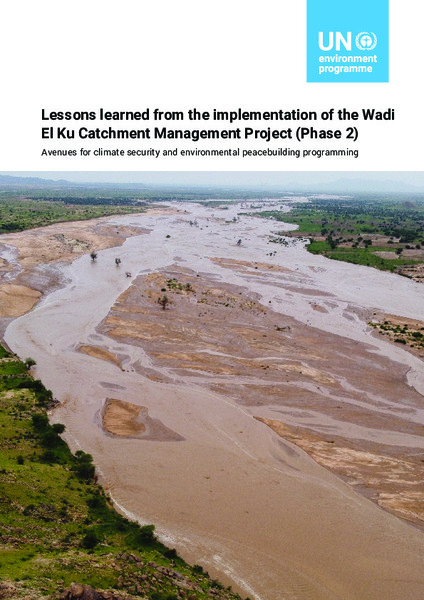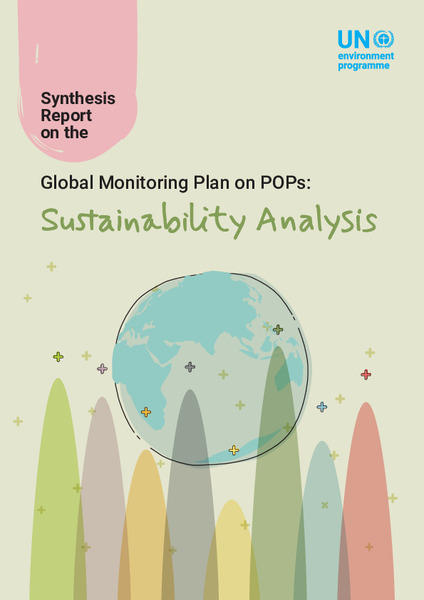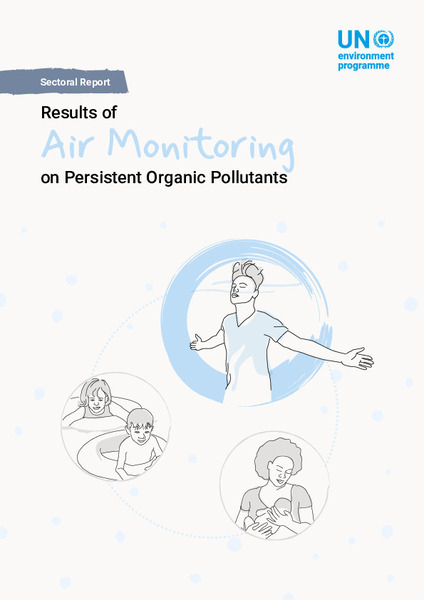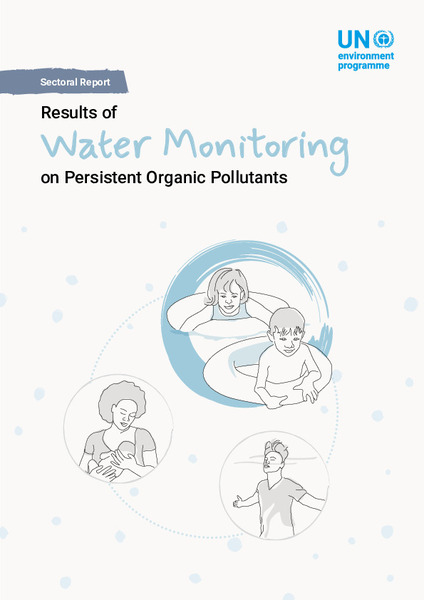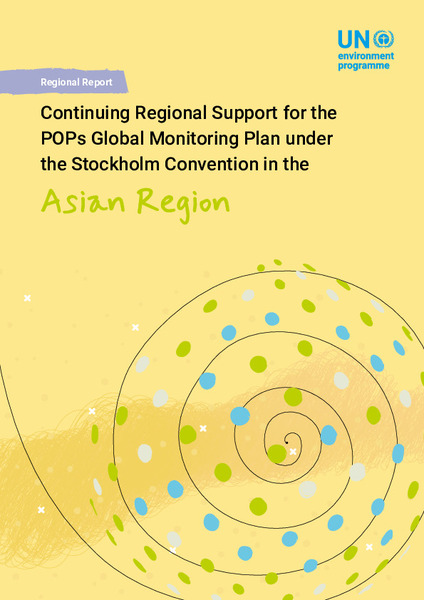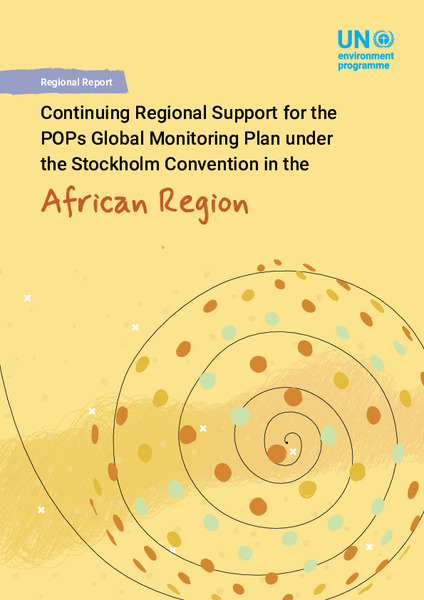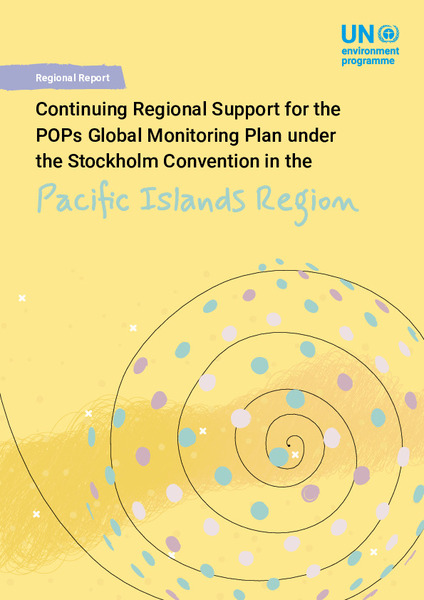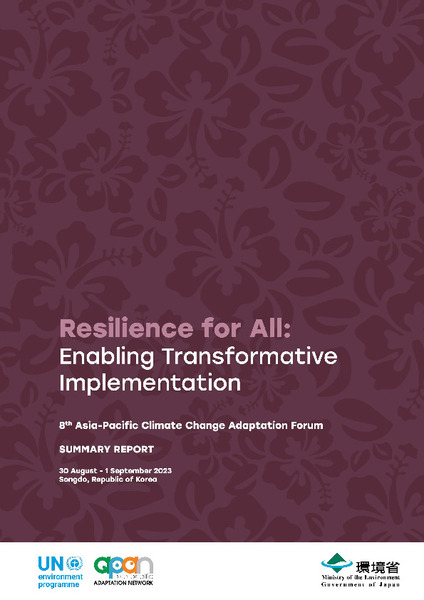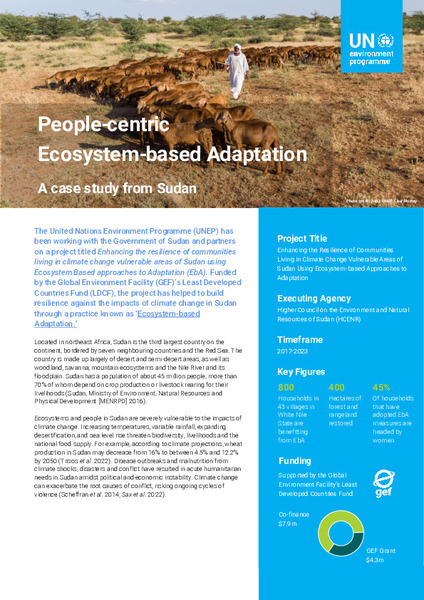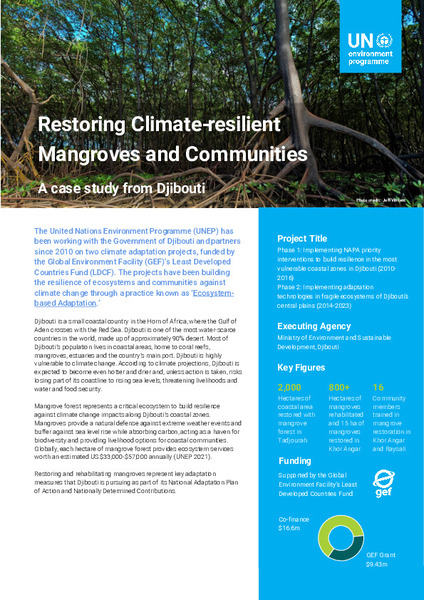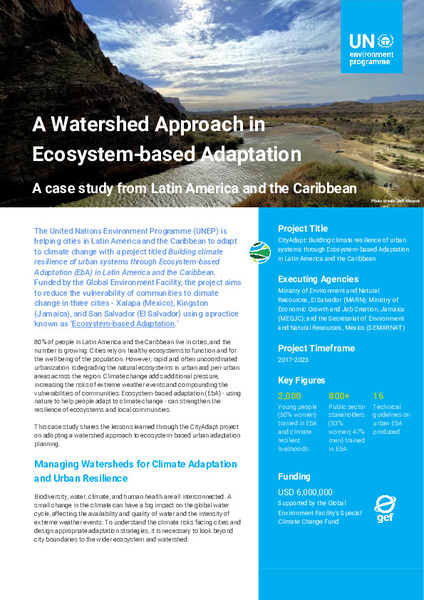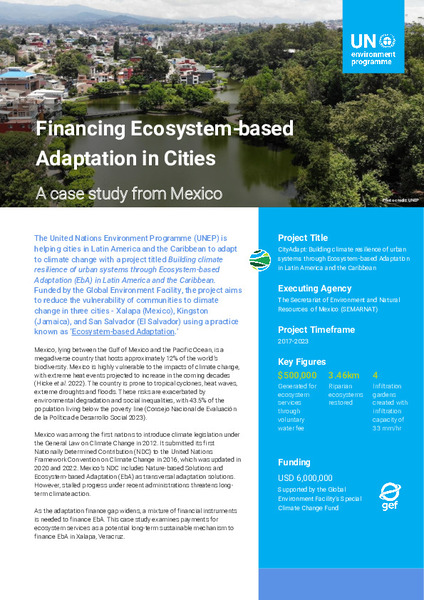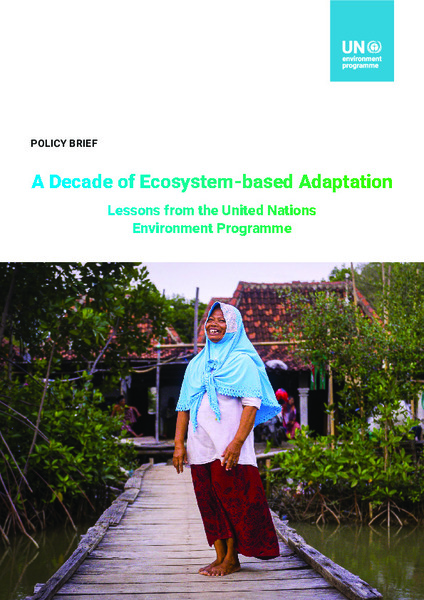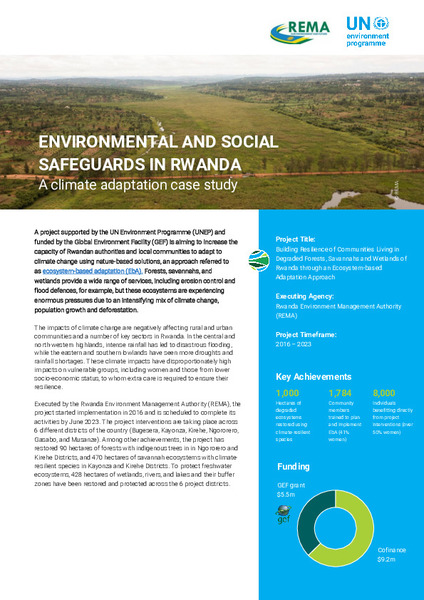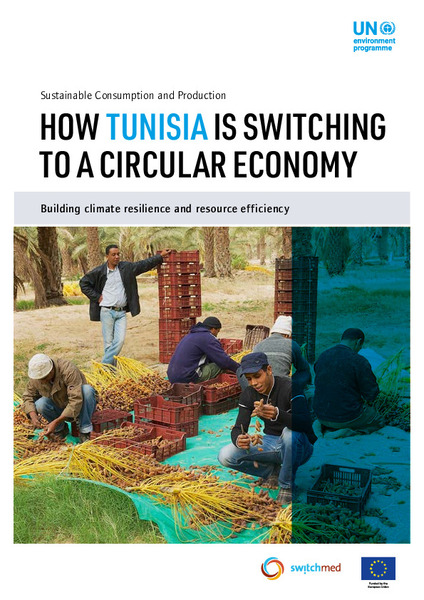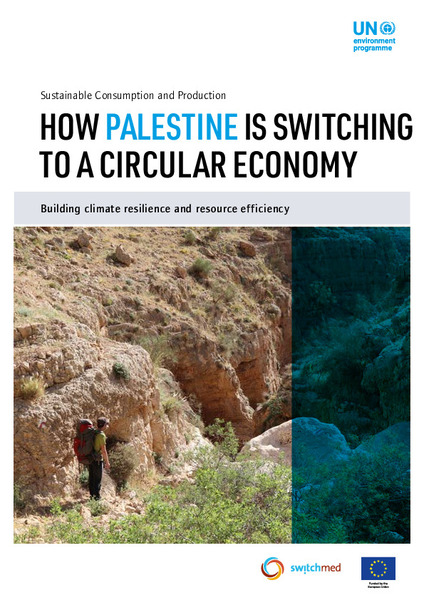Project Reports: Recent submissions
Now showing items 1-20 of 28
-
Lessons learned from the Implementation of the Wadi El Ku Catchment Management Project (Phase 2) - Avenues for Climate Security and Environmental Peacebuilding Programming
(2024-12)In response to Sudan’s challenges stemming from climate change, conflict and fragility, the UN Environment Programme (UNEP) and the European Union launched phase two of the Wadi El Ku Catchment Management Project (WEK 2). ... -
Global Monitoring Plan on POPs: Sustainability analysis - Synthesis Report
(United Nations Environment Programme, 2024-11)The Global Monitoring Plan (GMP) under the Stockholm Convention on Persistent Organic Pollutants (POPs) is a framework that enables collection of comparable monitoring data from all regions of the world to evaluate the ... -
Results of Air Monitoring of Persistent Organic Pollutants - Sectoral Report
(United Nations Environment Programme, 2024-04)The Global Monitoring Plan (GMP) under the Stockholm Convention on POPs is a tool that collects information on POPs in the environment and in humans. The GMP is a key component of the effectiveness evaluation of the ... -
Results of Water Monitoring on Persistent Organic Pollutants - Sectoral Report
(2024-04)This report summarizes and assesses the results from four regional UNEP/GEF GMP2 projects coordinated and implemented by the United Nations Environment Programme (UNEP) to support implementation of the global monitoring ... -
Continuing Regional Support for the POPs Global Monitoring Plan under the Stockholm Convention in the Asian Region - Regional Report
(United Nations Environment Programme, 2024-04)Persistent organic pollutants (POPs) are characterized by certain toxic properties which include resistance to degradation in the environment, bioaccumulation across food chains and long-range transportation though air, ... -
Continuing Regional Support for the POPs Global Monitoring Plan under the Stockholm Convention in the African Region - Regional Report
(United Nations Environment Programme, 2024-04)Persistent organic pollutants (POPs) are characterized by certain toxic properties which include resistance to degradation in the environment, bioaccumulation across food chains and long-range transportation though air, ... -
Continuing Regional Support for the POPs Global Monitoring Plan under the Stockholm Convention in the Latin American and Caribbean Region - Regional Report
(United Nations Environment Programme, 2024-04)Persistent organic pollutants (POPs) are characterized by certain toxic properties which include resistance to degradation in the environment, bioaccumulation across food chains and long-range transportation though air, ... -
Continuing Regional Support for the POPs Global Monitoring Plan under the Stockholm Convention in the Pacific Islands Region - Regional Report
(2024-04)This report addresses activities and results in support of the global monitoring plan (GMP) as stipulated by the Stockholm Convention on Persistent Organic Pollutants (POPs) and coordinated by the United Nations Environment ... -
Resilience for All: Enabling Transformative Implementation - 8th Asia-Pacific Climate Change Adaptation Forum: Summary Report
(United Nations Environment Programme, 2024-04)Over the past two decades, Resilience has served as a unifying theme for the APAN Forums. The past years have seen significant efforts towards generating knowledge and information on climate change adaptation at the global ... -
People-centric Ecosystem-based Adaptation: A case study from Sudan
(United Nations Environment Programme, 2024-04)Ecosystems and people in Sudan are severely vulnerable to the impacts of climate change. Increasing temperatures, variable rainfall, expanding desertification, and sea level rise threaten biodiversity, livelihoods and the ... -
Restoring Climate-resilient Mangroves and Communities: A case study from Djibouti
(United Nations Environment Programme, 2024-04)Mangrove forest represents a critical ecosystem to build resilience against climate change impacts along Djibouti’s coastal zones. Mangroves provide a natural defense against extreme weather events and buffer against sea ... -
A Watershed Approach in Ecosystem-based Adaptation: A case study from Latin America and the Caribbean
(2024-04)80% of people in Latin America and the Caribbean live in cities, and the number is growing. Cities rely on healthy ecosystems to function and for the well-being of the population. However, rapid and often uncoordinated ... -
Gender-responsive Ecosystem-based Adaptation: A case study from El Salvador
(United Nations Environment Programme, 2024-04)Coffee represents the backbone of the economy in El Salvador, with the vast majority produced by small-scale farmers. Almost 80% farmers cultivate on small plots of less than 3.5 hectares. However, changing temperatures ... -
Financing Ecosystem-based Adaptation in Cities: A case study from Mexico
(2024-04)Mexico was among the first nations to introduce climate legislation under the General Law on Climate Change in 2012. It submitted its first Nationally Determined Contribution (NDC) to the United Nations Framework Convention ... -
A Decade of Ecosystem-based Adaptation: Lessons from the United Nations Environment Programme - Policy Brief
(2024-03)Over the past decade, the United Nations Environment Programme (UNEP) has embraced Ecosystem based Adaptation (EbA) in supporting climate change response projects across the world. The adoption by UNEP of the EbA approach ... -
Review of Facts, Experiences, Achievements, and Challenges in Relation to POPs Monitoring
(United Nations Environment Programme, 2023-12)This review is based on the review of information from the implementation of the Global Monitoring Plan in core media (ambient air, human breast milk/blood, water) by strategic partnerships and by the United Nations ... -
Organization and Outcomes of Four Rounds of Interlaboratory Assessments on Persistent Organic Pollutants
(2023-12)Persistent organic pollutants (POPs) have been shown to adversely impact human health and the environment. Concern over POPs is also attributed to their stability and persistence in the environment, potential to undergo ... -
Environmental and social safeguards in Rwanda - A Climate adaptation case study
(United Nations Environment Programme, 2023-11)A project supported by the UN Environment Programme (UNEP) and funded by the Global Environment Facility (GEF) is aiming to increase the capacity of Rwandan authorities and local communities to adapt to climate change using ... -
How Tunisia is switching to a circular economy
(United Nations Environment Programme, 2023-11)Tunisia’s NAP process began with a thorough assessment of the state of SCP in the country, and from that two 10-year plans were developed, one for the agri-food sector and the other for tourism. Development of the NAP, and ... -
How Palestine is switching to a circular economy
(United Nations Environment Programme, 2023-11)Palestine’s NAP process began with wide-ranging consultations and a thorough assessment of the state of SCP in the country. More than 300 people took part in the development process. The NAP was conceived in line with the ...


